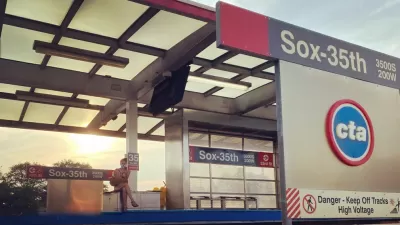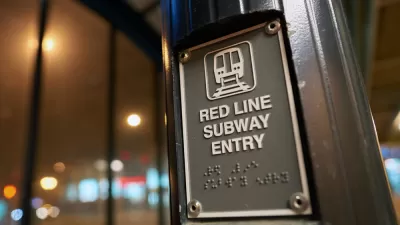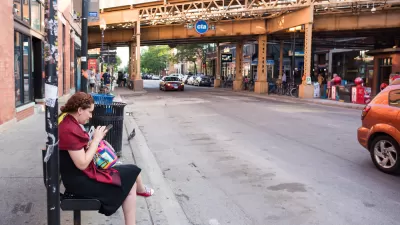A plan to extend the Chicago Transit Authority (CTA) Red Line 5.6 miles to the south won a $2 billion grant from the federal government.
A plan to extend the CTA Red Line from its current terminus at 95th Street in Chicago all the way to 130th Street got a key piece of the funding puzzle recently, when the Federal Transit Administration (FTA) approved $1.973 billion in grant funding through the New Starts program.
An article by Sarah Schulte provides more details on the project, and includes soundbites from a press conference by public officials, including Chicago Mayor Brandon Johnson, to announce the grant win. The officials touted the grant funding as a win for transit equity in the famously transit-oriented city.
“You know I love the West Side of Chicago, but it is well past time that the South and far South Side of Chicago gets its fair share of access to the economic vitality that the City of Chicago provides," said Mayor Johnson at the press conference. According to Mayor Johnson, the Red Line extension will provide transit access to 100,000 new riders on the South Side.
Planetizen first picked up news of the project when initial plans were released in January 2018. Most recently, Planetizen reported on the project when the City Council approved tax increment financing (TIF) to help fund the project. TIF funding is expected to provide $950 million of the total price tag of $3.6 billion for the project.
“The other half of the funding for the project will come from local funds, bonds, the CTA and other sources,” reports Schulte. “The project is about $300 million short of being fully funded, but 9th Ward Alderman Anthony Beale, who has been pushing for the extension for more than 20 years, is confident the shortage will not halt the project.”
The Red Line Extension would be the first expansion of the CTA rail system since 1993.
FULL STORY: CTA receives largest-ever federal infrastructure grant of nearly $2B for Red Line extension project

Maui's Vacation Rental Debate Turns Ugly
Verbal attacks, misinformation campaigns and fistfights plague a high-stakes debate to convert thousands of vacation rentals into long-term housing.

Planetizen Federal Action Tracker
A weekly monitor of how Trump’s orders and actions are impacting planners and planning in America.

In Urban Planning, AI Prompting Could be the New Design Thinking
Creativity has long been key to great urban design. What if we see AI as our new creative partner?

King County Supportive Housing Program Offers Hope for Unhoused Residents
The county is taking a ‘Housing First’ approach that prioritizes getting people into housing, then offering wraparound supportive services.

Researchers Use AI to Get Clearer Picture of US Housing
Analysts are using artificial intelligence to supercharge their research by allowing them to comb through data faster. Though these AI tools can be error prone, they save time and housing researchers are optimistic about the future.

Making Shared Micromobility More Inclusive
Cities and shared mobility system operators can do more to include people with disabilities in planning and operations, per a new report.
Urban Design for Planners 1: Software Tools
This six-course series explores essential urban design concepts using open source software and equips planners with the tools they need to participate fully in the urban design process.
Planning for Universal Design
Learn the tools for implementing Universal Design in planning regulations.
planning NEXT
Appalachian Highlands Housing Partners
Mpact (founded as Rail~Volution)
City of Camden Redevelopment Agency
City of Astoria
City of Portland
City of Laramie





























